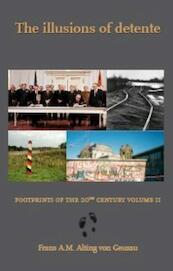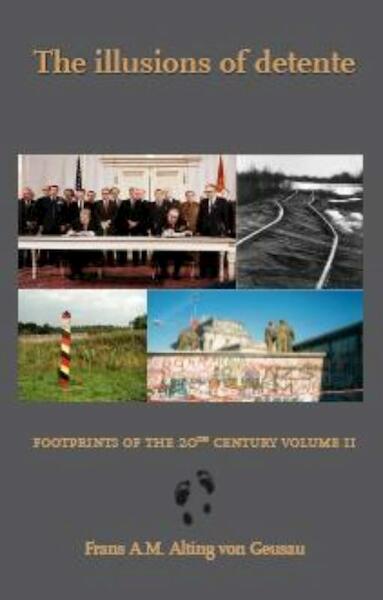| Prijs | € 30,00 |
Uitverkocht
Paperback | Augustus 2009 |
Beoordeel dit boek als eerste!Beschrijving
Specificaties
- Auteur
- F.A.M. Alting von Geusau
- Uitgever
- Wolf Legal Publishers
- ISBN
- 9789058505224
- Bindwijze
- Paperback
- Publicatiedatum
- Augustus 2009
- Categorie
- Wetenschappelijk
- Taal
- Nederlandstalig
Beschrijving
Since 1989, we refer to the whole post-war period as the "Cold War Era". Such was not the case in 1968. At the time, the cold war - in our perception - was behind us. We no longer felt to be in the midst of it. Europeans on the Western side of the Iron Curtain felt relatively at ease with Europe's division. The era of Détente as we called it, was considered to be a fairly stable and long-lasting political condition, even after Soviet tanks crushed Dubcek's socialism with a human face in Prague.
A strange year it was... 1968. Academic interest was focused on the war in Vietnam, nonproliferation of nuclear weapons, the French Gaullist challenge to the European Communities and the student revolt in Paris. The Western democracies promoted the process of détente on the basis of three political illusions. They assumed that common institutions between East and West would generate a sense of common interest in European security, facilitating negotiated solutions of outstanding problems. They expected East-West economic cooperation to promote reform from above in the East, towards more open societies. They hoped to foster democracy and respect for human rights through cooperation in the cultural and human dimension.
By 1989 all three of them had proven to be illusions. The end of the Soviet system came as a complete surprise to most politicians and to all Western advocates of détente in the Nineteen Eighties. The so-called dissidents won a peaceful victory over the one-party, repressive regimes in the East and helped to end the post-war division of Europe. Obviously, neither the (now former) communists nor the advocats of detente ever admitted their wrong. So they went all into the business of proclaiming a new era as a continuation of the old one.The greatest catastrophe of the Twentieth Century was Lenin`s creation of totalitarian Soviet Russia at the end of the Great War and not its collapse at the end of the Cold War, as president Putin said in 2005.
In this second volume of his Footprints of the Twentieth Century, the author challenges the past illusions of détente and the present approach of organized forgetting the past.
Published in this Series;
1. Cultural Diplomacy: Waging War With Other Means? 2009
2. The Illusions of Détente, 2009.
3. Western Cooperation. Origins and History, (second edition) 2009.
4. European Unification into the twenty first century (second edition, 2012)
5. Forthcoming: Neither Justice nor Order
Schrijf een recensie
Specificaties
- Auteur
- F.A.M. Alting von Geusau
- Uitgever
- Wolf Legal Publishers
- ISBN
- 9789058505224
- Bindwijze
- Paperback
- Publicatiedatum
- Augustus 2009
- Categorie
- Wetenschappelijk
- Taal
- Nederlandstalig











